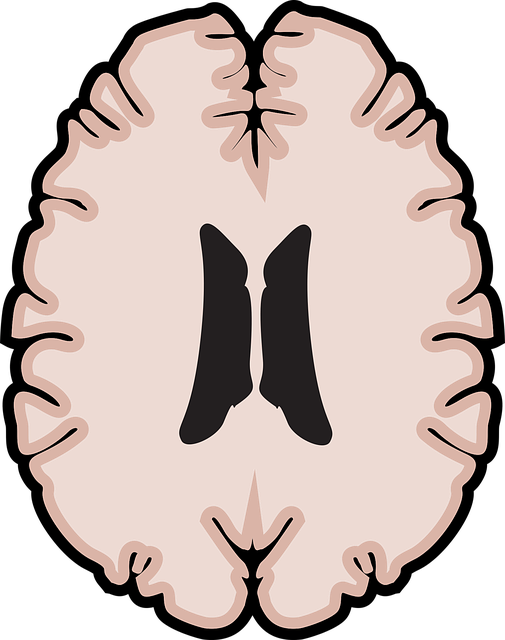Self-care is essential for young children's well-being but often overlooked. Christian counseling offers tailored therapy focusing on healthy coping skills, stress management, and emotion regulation through safe spaces and age-appropriate exercises. This holistic approach boosts self-worth, confidence, and mental health, integrating spiritual and emotional well-being. By teaching self-care practices and breaking down barriers, it ensures all children have access to resources for optimal mental wellness, fostering resilience and adaptability for life's challenges.
In today’s fast-paced world, self-care is a vital practice, especially for young children. This article explores the transformative power of self-care in nurturing the well-being of children, with a specific focus on the role of Christian counseling. We delve into strategies that parents and caregivers can employ to integrate self-care into daily routines, while addressing common barriers and providing guidance on measuring success. By combining therapy with practical tips, we aim to empower individuals to foster healthy habits for both present and future happiness.
- Understanding the Importance of Self-Care for Young Children
- The Role of Christian Counseling in Promoting Self-Care
- Strategies for Integrating Self-Care into Daily Routines
- Overcoming Barriers to Effective Self-Care Practices
- Measuring Success and Sustaining Long-Term Self-Care Habits
Understanding the Importance of Self-Care for Young Children

For young children, self-care is not merely a luxury but an essential foundation for their overall well-being and development. Often overlooked in the busyness of daily life, nurturing a child’s emotional health from an early age is paramount. Therapy for young children, including Christian counseling, plays a pivotal role in helping them understand and practice healthy coping skills. These sessions cater specifically to the unique needs and minds of children, integrating mind over matter principles that teach self-awareness exercises tailored to their age group.
By incorporating these practices, children can learn to manage stress, regulate emotions, and develop resilience—skills that will serve them well into adulthood. The process involves creating safe spaces where they can express themselves freely, explore their feelings, and acquire tools to navigate life’s challenges. Such early intervention not only supports their mental health but also fosters a sense of self-worth and confidence in their ability to cope with various situations.
The Role of Christian Counseling in Promoting Self-Care

Christian counseling offers a unique approach to self-care, integrating spiritual and emotional well-being for individuals, especially young children. This form of therapy is centered around fostering positive thinking and building empathy within the individual, thereby promoting self-esteem improvement. It provides a safe space for clients to explore their feelings, beliefs, and behaviors without judgment, allowing them to cultivate a deeper connection with themselves and others.
Through Christian counseling, children can learn valuable coping strategies that extend beyond conventional therapy. The emphasis on faith and spirituality can help them develop resilience and a sense of purpose. By addressing emotional needs and encouraging open communication, this counseling method empowers young clients to navigate life’s challenges with increased confidence and improved mental health.
Strategies for Integrating Self-Care into Daily Routines

Integrating self-care into daily routines is a vital step towards fostering mental health and overall well-being, especially for young children. Christian counseling offers unique strategies tailored to support families in this process. One effective method is to design mental health education programs that teach both children and parents about the importance of self-care practices. These programs can incorporate Mind Over Matter principles, helping kids understand their thoughts and emotions, and encouraging them to express themselves through creative outlets like art or journaling.
Additionally, regular therapy sessions can provide a safe space for children to process any challenges they face while teaching them coping mechanisms. By reducing the stigma associated with mental illness, these efforts create an environment where self-care is normalized and encouraged. This holistic approach ensures that young individuals develop healthy habits early on, setting the foundation for a lifetime of well-being.
Overcoming Barriers to Effective Self-Care Practices

Overcoming barriers to effective self-care practices is essential for cultivating mental wellness among young children. Many parents and caregivers may face challenges in implementing healthy habits due to demanding schedules, cultural influences, or a lack of awareness about the importance of self-nurturing. For instance, in communities where therapy for young children is not readily accessible or stigmatized, promoting self-care can be an uphill battle. Christian counseling offers a unique approach to address these barriers by integrating faith-based principles with evidence-based practices.
The concept of “mind over matter” is central to this process, encouraging individuals to take charge of their emotional and psychological well-being. Crisis intervention guidance within Christian counseling provides tools to navigate stressful situations, fostering resilience in young minds. By combining biblical teachings with modern therapeutic techniques, this approach breaks down barriers, ensuring that every child has access to the resources needed for optimal mental wellness.
Measuring Success and Sustaining Long-Term Self-Care Habits

Measuring success is a vital aspect of self-care, especially when aiming to create lasting habits. It’s about more than just checking off boxes; it involves recognizing and celebrating small victories along the journey. For instance, consistent participation in therapy for young children or engaging in regular Christian counseling sessions can be powerful indicators of progress. These practices not only provide tools for coping but also foster personal growth and resilience.
Sustaining long-term self-care requires a shift towards self-compassion and understanding. It’s about recognizing that burnout prevention strategies for healthcare providers, such as effective stress management and depression prevention techniques, are essential for maintaining overall well-being. By integrating these practices into daily routines, individuals can create a balanced lifestyle that supports their mental health, ensuring they remain equipped to navigate life’s challenges with resilience and adaptability.
In light of the above discussions, it’s clear that integrating self-care practices is vital for the holistic development of young children. The combination of understanding self-care’s importance, leveraging Christian counseling as a supportive tool, and adopting effective strategies can significantly enhance a child’s well-being. Overcoming barriers and consistently measuring success are key to sustaining long-term self-care habits. By embracing these practices, parents and caregivers can foster healthy minds and bodies in young children, setting them up for a brighter future, and potentially reducing the need for subsequent therapy.









